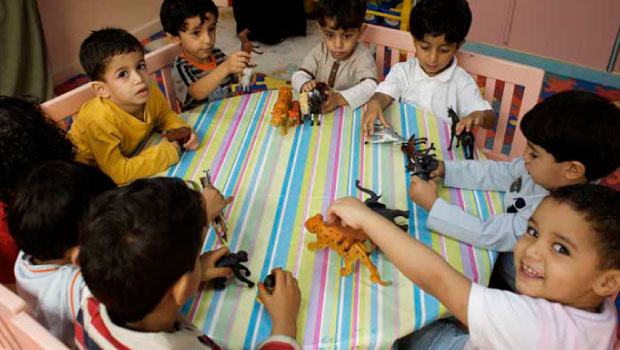
Muscat: Putting the rights of children first has earned the country the highest ranking of all the Gulf countries in the KidsRights Index.
The Sultanate was ranked first for upholding children’s rights in the GCC region, according to the KidsRights Index 2016, followed by Qatar and Kuwait, which came in second and third, respectively.
United Arab Emirates and Saudi Arabia followed, leaving Bahrain as the country with the worst record in GCC for maintaining children’s rights.
Oman was ranked third, with regards to Arab nations and was preceded by Tunisia and Egypt. Among the 163 countries included in the Index, the Sultanate was ranked at number 40.
The KidsRights Index was compiled, based on the study of five domains: right to life, right to health, right to education, right to protection and enabling an environment for child rights; where 23 indicators, such as ‘under 5 mortality rate,’ ‘life expectancy at birth,’ ‘child labour’ and many others are evaluated in order to conclude the final findings for each country.
Omani parents expressed their jubilation and agreed with the report, saying they feel that their children are getting everything they need to live a healthy life.
“I do feel that Oman imparts great care to children. Every child in Oman receives free education in public schools and healthcare at government hospitals,” said Um Tariq, an Omani parent.
“The Sultanate has the facilities necessary for nurturing and helping in the growth of children. My children are all grown up now and are all working in Oman,” she added.
In September 2015, the Committee for the Rights of the Child from the United Nations Human Rights Office of the High Commissioner listed a set of problems that Oman must resolve during the time frame set by the authority regarding the Children’s Act.
According to a statement made by the Sultanate before the United Nations, the Children’s Act gives rights to children from birth to health, education and culture.
The statement reads, “The Act recognises the child’s right to preventive and therapeutic health care and stipulates that the State shall ensure his or her enjoyment of the highest attainable standard of free health care.”
“On the subject of educational rights, the Act recognises the child’s right to free education in public schools until completion of the post-primary stage and makes the completion of primary education compulsory,” added the statement.
The Children’s Act also provides children with protection by way of children protection committees, temporary shelters and child protection officers.
The statement goes on to say, “A National Strategy for Childhood 2016-2025 has now been drafted, which is a working methodology based on an integrated and holistic approach to children’s rights and has been adopted and budgetary allocations have been made for the childhood sector in the light of the objectives and expected results.”
“The strategy focuses on a number of factors, such as the need to respect the principles of the Islamic Sharia and the Sultanate’s Basic Law, policies and legislation, to apply the Children’s Act, to observe international treaties, conventions and protocols and to take into account the principles of the rights of the child and Millennium Development Goals,” the statement added.